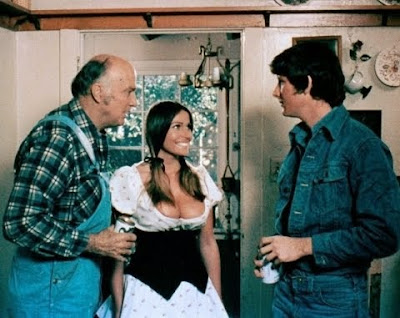Lucy
There are spoilers
The notion that humans only use 10% of their brains was debunked some time ago, but given the growing idiocracy, perhaps a case can be made after all. Ah, but that's another movie, invisible audience. In any event, it makes for a swell jumping off point for science fiction. Luc Besson's LUCY from 2014 continues the writer/director's fondness for eye popping visuals and breathless paces. It recalls his efforts as early as 1985's SUBWAY, with generous allusions to THE FIFTH ELEMENT and LEON. Besson is a stylist, mostly concerned with what looks the most striking at any given moment. Logic, plausibility, and scientific accuracy are coincidental.
Arguably, for pure popcorn fiction, that's how it should be. Many love to grill movies like GRAVITY for their lack of accurate science, but if one is attempting to paint the canvas of a patently artificial landscape, a fanciful race through the imagination, we should lower our scopes and just let them get on with it. Besson is not trying to play by any rules but his own. That established, the critic should just sit back and let the movie wash over him or her.
"But..." cries the veteran movie viewer, "2001: A SPACE ODYSSEY had trippy visuals that washed over me but maintained the laws of physics and wasn't at all stupid..." True, but Kubrick was working from Arthur C. Clarke's tome, purposing restricting his film. Entirely different animal, despite some who say that LUCY is a modern day 2001. Besson is making it up as he goes along, using scraps of verifiable science as chum to keep the malcontents at bay, at least for a few seconds. LUCY flirts with true research and then gleefully barrels ahead.
Scarlett Johannson is the titular heroine, a young student in Taiwan tricked into delivering a briefcase filled with a blue powder called CPH4, a synthetic pharmaceutical that can up that mental capacity far beyond 10%. After some harrowing developments, she awakens with a bag of the drug sewn into her abdomen. She learns from a gallery of well dressed Asian and British toughs that she is to be a mule somewhere into Europe.
Lucy will discovers the effects of the mysterious substance when it is accidentally released into her bloodstream. She begins to discern powers of telekinesis, super hearing, mental time travel, imperviousness to pain, and eventual omniscience. Besson alerts us throughout the film (via title cards) as to the advancing percentage of her brain power. One unfortunate by-product is her increasing robotic state. Recognizing this early on, Lucy places her a call to her mother to tell her she loves her and plants a kiss on a French police chief "to remind myself" of what desire feels like.
Meanwhile, professor Samuel Norman (Morgan Freeman) delivers a lecture on cellular biology and cerebellar function. His discussion, which includes time lapse footage of animal behavior in the wild, will foretell and mirror Lucy's evolution into knowledge itself. By the finale, I was oddly reminded of Johansson's role in the film HER. Think about it.
The early scenes in LUCY are great fun, dazzling us with whiz bang shots and intriguing with its heady concepts. The later scenes don't fare as well, becoming over-the-top both in its CGI and frantic attempts at hard scientific explanation, often becoming giggle inducing and downright silly. Always a risk in this genre. And Besson is still in love with scenes involving flanks of gunmen firing down hallways. The mix only occasionally works. The running time is short and just right, though in some ways the story was just beginning when Lucy finally transformed into a flash drive.



Comments